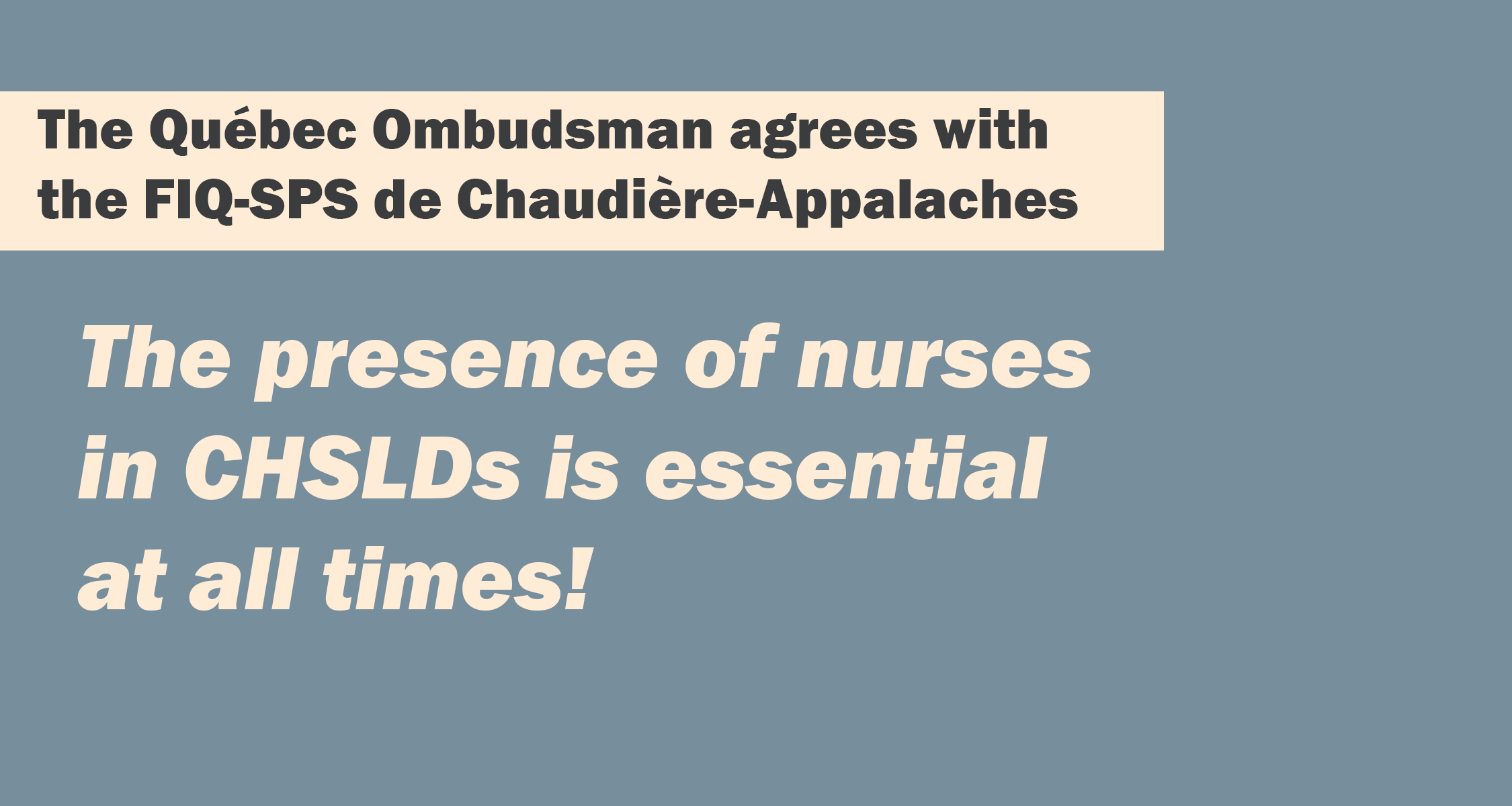
The Québec Ombudsman agrees with the SPSCA : the presence of nurses in CHSLDs is essential at all times!
For several months, the FIQ-Syndicat des professionnelles en soins de Chaudière-Appalaches has been waging a major battle with the employer at the CISSS de Chaudière-Appalaches who decided to set up a mobile on-call nurse model (une garde d’infirmière mobile (GIM)) in the CHLSDs. Under the premise of a labour shortage, especially because of COVID, the GIM was to be used on a limited basis in the summer of 2021 and for exceptional situations. However, this practice still exists in certain CHLSDs. Thus, there is not always a nurse on the evening and night shift for the entire shift in their CHSLDs.
When setting up the GIM, the SPSCA and FIQ denounced this irregularity, which jeopardizes the care quality and safety of the patients who are housed in these institutions. Faced with the employer’s stubbornness in pursuing this course of action, the local union multiplied its efforts, even going so far as to call on the Québec Ombudsman – in this case, Ms. Marie Rinfret, Québec Ombudsman – who decided to intervene by conducting an inquiry.
Last week, the latter made her report public which agreed with the SPSCA. There are 6 recommendations, the last two directed at the Ministry of Health and Social Services (MSSS):
- Respect the ministerial directive of ensuring a nursing presence on every shift in a CHSLD;
- Improve the exclusion criteria of the mobile on-call nurse model to ensure the health and safety of housed persons in all circumstances;
- Evaluate the effects of setting up mobile on-call nurses on the quality and safety of the care and services provided to the people housed in CHSLDs;
- Foster the retention and attraction of nursing staff in CHSLDs;
- Carry out a situation report to find out which institutions do not comply with the ministerial directive to ensure a nursing presence on every shift in CHSLDs;
- Issue guidelines for ensuring the safety of the people housed in CHSLDs in the context of a major nursing staff shortage.
Unfortunately, the COVID-19 pandemic has dramatically highlighted the many shortcomings in the health and social services network, including that of inadequate healthcare professional-to-patient ratios in CHSLDs. It is therefore extremely worrying that healthcare institutions are implementing such risky practices as a telephone on-call nurse. This seems to ignore the lessons learned tragically, at the cost of too many lives in the last year and a half.
It is essential to ensure a nursing presence 24/7 in CHLSDs. The complex health needs of the people housed there, who are often vulnerable, require a constant presence, to assess their physical and mental condition and to coordinate the work of the whole care team to ensure adequate and continuous clinical monitoring.
In a context where the government and employers are looking for different ways to alleviate the labour problems, the FIQ hopes that this report will not be forgotten and will force the MSSS and other employers not to take the same route. The health care and safety of the care provided to patients, must be at the heart of the decisions taken.